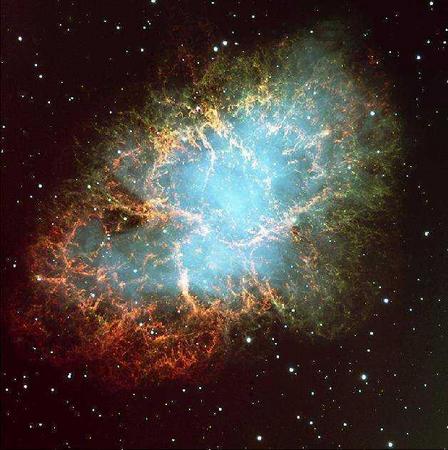| The Universe as God | 2008-05-16 13:34 7 comments |
 by Flemming Funch by Flemming FunchHow wonderful. Stuart Kauffman, theoretical biologist and complexity theory pioneer, talks about reinventing the sacred, getting over reductionism, appreciating the awesome wonder of existence, and redefining God to be essentially the creativity of the universe. You just can't explain the complexity of the universe by reducing it all to physics that all were pre-determined. There's an article in New Scientist: "Why humanity needs a God of creativity", there's his excellent entry at Edge: "Beyond Reductionism", and there's his latest book "Reinventing the Sacred". [T]he unfolding of the universe - biotic, and perhaps abiotic too - appears to be partially beyond natural law. In its place is a ceaseless creativity, with no supernatural creator. If, as a result of this creativity, we cannot know what will happen, then reason, the Enlightenment's highest human virtue, is an insufficient guide to living our lives. We must use reason, emotion, intuition, all that our evolution has brought us. But that means understanding our full humanity: we need Einstein and Shakespeare in the same room.The EDGE article is dense with science, and I understand less than half of it, but very worth reading, even if you don't get it all. So I'm just quoting the easy-to-read conclusions. Remember, this is a hard-core scientist here, not just somebody who writes popular books that involve scientific metaphors. To ever succeed, this new view needs to be soft spoken. You see, we can say, here is reality, is it not worthy of stunned wonder? What more could we want of a God? Yes, we give up a God who intervenes on our behalf. We give up heaven and hell. But we gain ourselves, responsibility, and maturity of spirit. I know that saying that ethics derives from evolution undercuts the authority of God as its source. But do we need such a God now? I think not. Nor do we need the spiritual wasteland that post-modernism has brought us. Beyond my admired friend Kenneth Arrow, natural parks are valuable because life is valuable on its own, a wonder of emergence, evolution and creativity. Reality is truly stunning. So if you find this useful, let us go forth, as was said long ago, and invite consideration by others of this new vision of reality. With it, let us recreate spiritual community and membership. Let us go forth. Civilization needs to be changed.Count me in. (Via BoingBoing) |